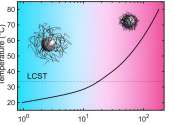European XFEL elicits secrets from an important nanogel
An international team at the world's largest X-ray laser European XFEL at Schenefeld near Hamburg has scrutinized the properties of an important nanogel that is often used in medicine to release drugs in a targeted and controlled ...









